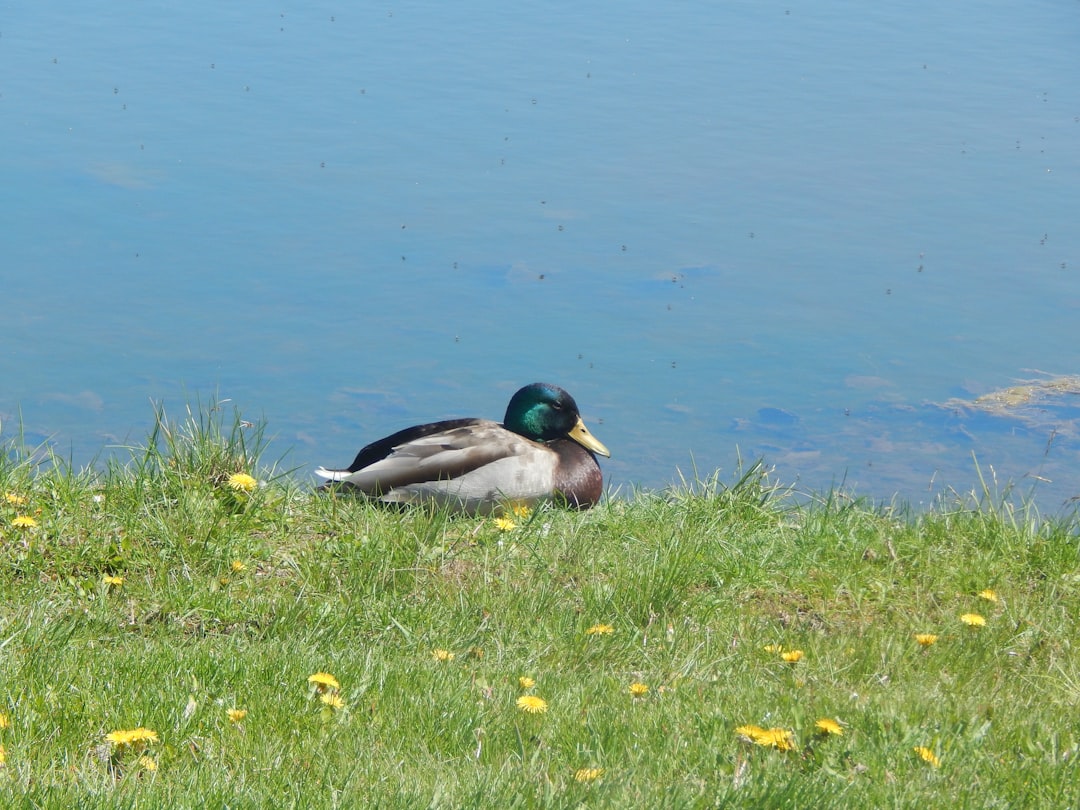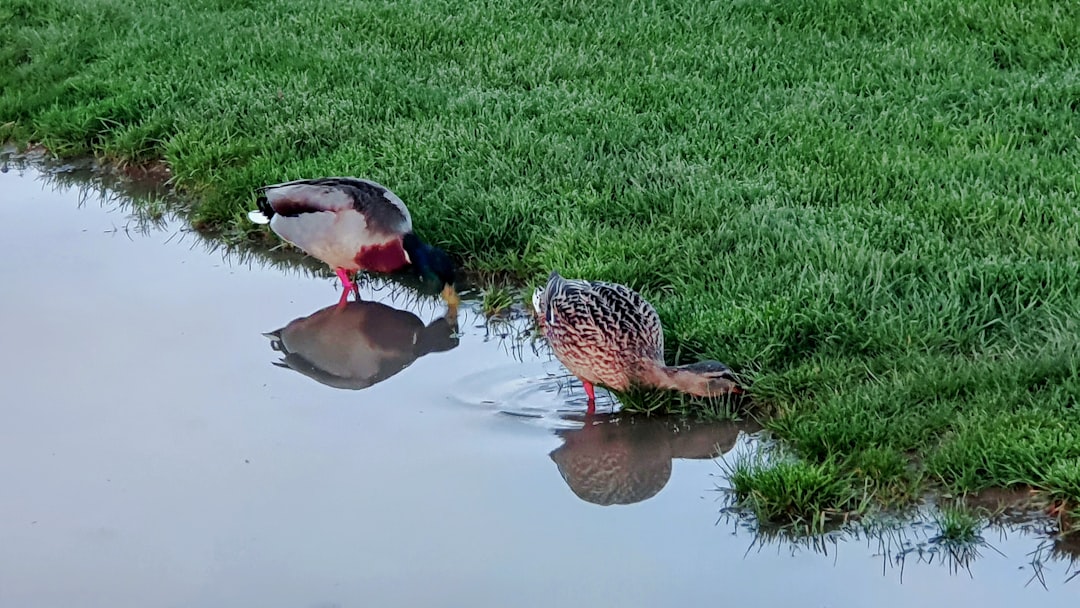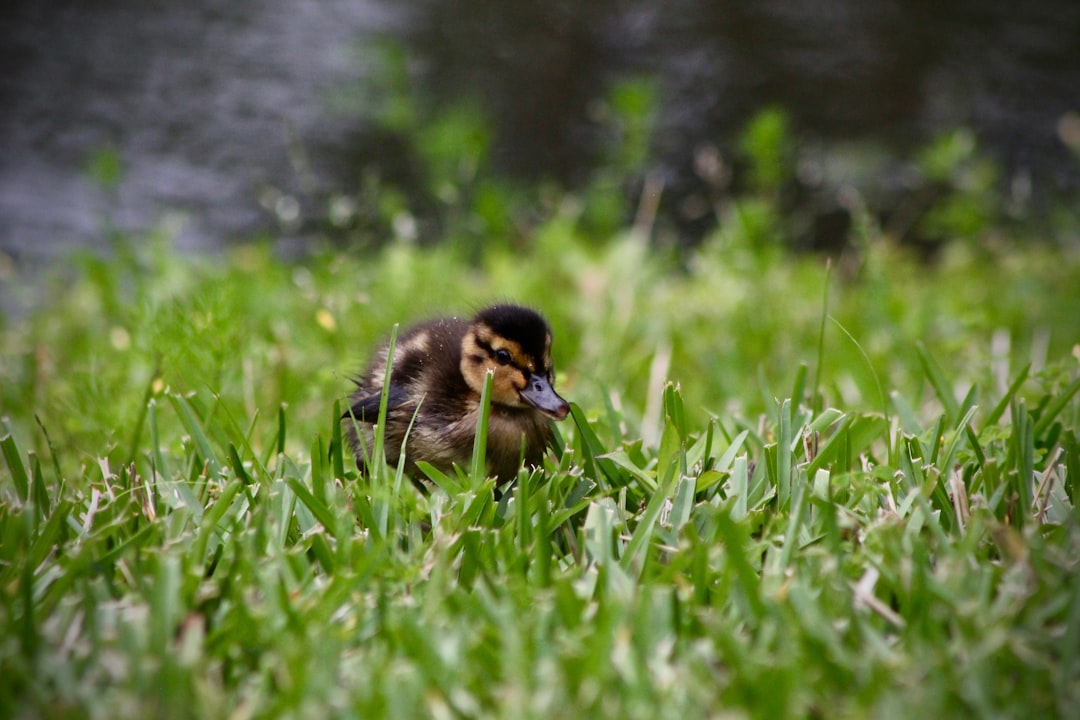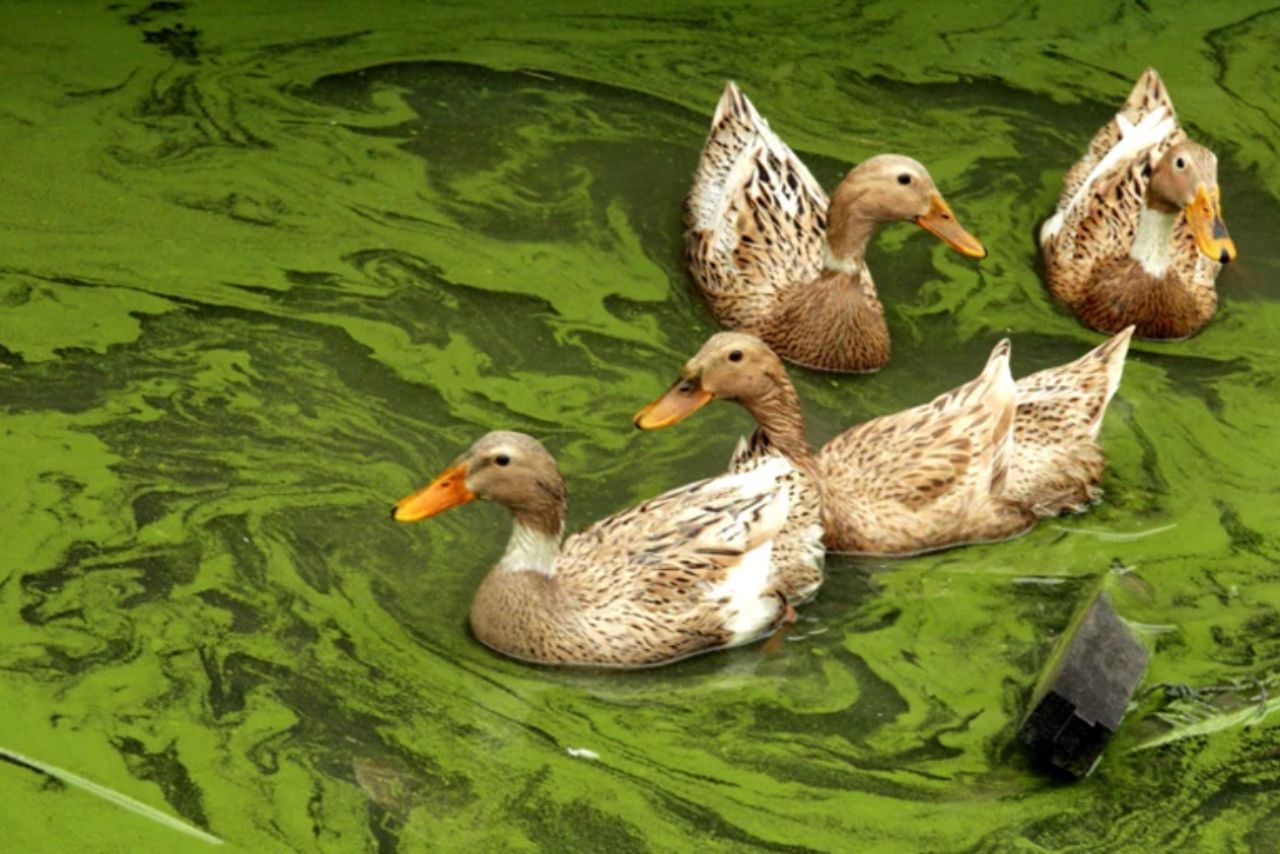Yes, Ducks can eat algae like other organisms. Ducks are known to be natural scavengers and omnivores.
They feed on a variety of food sources including insects, plants, seeds, and even small fish. One question that often arises among duck enthusiasts is whether or not ducks eat algae.
Algae is a common organism that grows in ponds and lakes, and it’s often seen as a nuisance to pond owners.
In this article, we will explore the question of whether or not ducks eat algae and provide some insight into the feeding habits of these waterfowl. So, Do Ducks Eat Algae?
Ducks are known to eat a variety of food sources, including plants and small fish. While they may nibble on algae occasionally, it is not a significant part of their diet.
Ducks prefer to feed on insects, seeds, and aquatic vegetation. Therefore, ducks may eat Algae.
Algae is not a preferred food source for ducks, and they usually consume it as a supplement to their primary diet.
What Is Algae?
Algae are simple aquatic plants that can grow in both freshwater and saltwater environments.
They can be found in various forms, including single-celled organisms and large seaweeds.
Algae serve as an essential part of the aquatic ecosystem, providing food for various organisms such as fish and small invertebrates.
The presence of algae in ponds and lakes indicates a healthy ecosystem, which benefits not only ducks but also other wildlife.
Importance Of Algae In Aquatic Ecosystems
Algae play a critical role in the aquatic ecosystem as they produce oxygen through photosynthesis, which supports the survival of fish and other organisms in the water.
They also absorb carbon dioxide and other nutrients from the water, helping to maintain the balance of the ecosystem.
However, excessive growth of algae can cause problems such as oxygen depletion, leading to fish kills and other negative effects on the ecosystem.
The Role Of Ducks In Aquatic Ecosystems
Apart from algae, ducks play a significant role in the aquatic ecosystem.
They help to control the population of insects and other small organisms that live in ponds and lakes.

Additionally, they disperse seeds, helping to propagate aquatic plants around their habitat.
Ducks also contribute to nutrient cycling by excreting waste that fertilizes the water and surrounding vegetation.
Observations Of Duck Behavior In The Wild
Observations of duck behavior in the wild have shown that they are opportunistic feeders and will eat whatever is available to them.
Ducks will often dive into the water to forage for food, using their bills to sift through mud and sediment at the bottom of ponds and lakes. They may also graze on land, feeding on grasses and other vegetation.
It’s important to note that ducks should not be fed by humans as it can disrupt their natural feeding habits and lead to health problems.
Feeding ducks bread or other human food can cause malnutrition, digestive issues, and encourage overcrowding in areas where ducks congregate.
Positive Effects Of Ducks Eating Algae
Positive Effects Of Ducks Eating Algae Are As Under:
1. Promotes better water quality:
Ducks are natural algae eaters, and they can help to keep ponds, lakes, and other bodies of water clear of excess algae growth.
This helps to maintain a healthier ecosystem for other aquatic life.
2. Provides a natural food source:
Algae is a nutritious food source for ducks, providing them with important vitamins and minerals.
Eating algae can also help to supplement their diet if other food sources are scarce.
3. Helps prevent harmful algal blooms:
Some types of algae can be harmful to humans and animals, causing illnesses or even death.
By consuming algae, ducks can help to prevent harmful algal blooms from occurring.
4. Reduces the need for chemical treatments:
In some cases, algae growth can become so excessive that chemical treatments are needed to control it.
By introducing ducks to the area, the need for these treatments may be reduced or eliminated.
5. Promotes biodiversity:
By consuming algae, ducks help to create a more diverse ecosystem.
This can attract other types of wildlife, such as fish and insects, which in turn can support a wider range of birds and animals.
Negative Effects Of Ducks Eating Algae
Negative Effects Of Ducks Eating Algae Are As Under :
- 1. Algae can contain toxins that are harmful to ducks. When ducks eat algae that contain toxins, it can lead to illness or even death.
- 2. Overconsumption of algae by ducks can lead to imbalances in aquatic ecosystems. Algae serves as an important food source for other aquatic organisms, and if ducks consume too much of it, it can disrupt the food chain.
- 3. Ducks that eat too much algae may have trouble digesting it, which can lead to digestive issues and other health problems.
- 4. Algae can also cause water quality issues. When large amounts of algae are consumed by ducks, it can lead to an overgrowth of algae in the water, which can deplete oxygen levels and harm other aquatic life.
- 5. Invasive species of algae can be introduced to new areas by ducks that consume them, leading to further ecological disruptions.
Overall, while ducks may enjoy eating algae, it’s important to monitor their consumption to ensure that it doesn’t have negative effects on their health or the health of the surrounding ecosystem.
Is Algae Good For Ducks?
While algae is a nutritious food source for ducks, it should not be relied upon as a primary food source.
Ducks require a varied diet to maintain good health and survive in the wild.
Additionally, not all types of algae are safe for consumption by ducks, as some may contain harmful toxins.
What Kind Of Algae Do Ducks Eat?
Ducks are known to eat a variety of algae species, but their preferences may vary depending on the location and availability of food.

Some common types of algae that ducks consume include filamentous green algae, diatoms, and blue-green algae.
However, it’s important to note that not all types of algae are safe for consumption by ducks, as some can contain harmful toxins.
In addition to eating algae, ducks also consume other types of aquatic vegetation such as pondweeds and watermilfoils.
Do Baby Ducks Eat Algae?
Baby ducks, also known as ducklings, typically do not eat algae.
Instead, they rely on their mother for a diet of insects, small invertebrates, and other protein-rich foods.

As they mature, they gradually transition to a more varied diet that includes aquatic vegetation and small fish.
It’s important to note that while adult ducks can help to control algae growth in bodies of water, this should not be relied upon as the sole method of algae management.
Proper water management practices such as controlling nutrient levels and promoting biodiversity should also be implemented to maintain a healthy ecosystem.
Can Algae Make Ducks Sick?
Yes, algae can make ducks sick. Some types of algae can contain harmful toxins that can cause illness or even death in ducks if ingested in large amounts.
Symptoms of algae poisoning in ducks include lethargy, loss of appetite, and difficulty breathing.
It’s important to monitor the water quality and algae levels in bodies of water where ducks live and feed to ensure their safety.
Do Ducks Eat Pond Algae?
Yes, ducks may eat pond algae as it is a common type of algae found in bodies of water.
However, not all types of pond algae are safe for consumption by ducks, as some may contain harmful toxins that can make them sick.
It’s important to monitor the water quality and the amount of algae present in the pond to ensure that it doesn’t have negative effects on the health of the ducks or other aquatic life.
In addition to consuming pond algae, ducks also feed on a variety of other foods such as aquatic vegetation, small fish, snails, and insects found in the water or along the shoreline.
Final Talk: Do Ducks Eat Algae?
While algae may be a nutritious food source for ducks when consumed in moderation, it’s important to be aware of the potential risks associated with consuming certain types of algae.
Proper management practices should be implemented to maintain healthy ecosystems and ensure the safety of wildlife populations.
Ducks do eat algae, but it is not a significant part of their diet.
They also consume other foods such as aquatic vegetation, small fish, snails, and insects found in the water or along the shoreline.
While adult ducks can help control algae growth in bodies of water, proper water management practices such as controlling nutrient levels and promoting biodiversity should also be implemented to maintain a healthy ecosystem.
Lastly, if you suspect that a duck has consumed harmful algae, it’s best to contact a veterinarian immediately for treatment.
FAQs
Do all ducks eat algae?
No, not all ducks eat algae. While some may consume it occasionally as part of their varied diet, it is not a significant portion of their food intake.
Does Algae be harmful to ducks?
Yes, some types of algae can contain harmful toxins that can make ducks sick if ingested in large amounts.
It’s important to monitor the water quality and algae levels in bodies of water where ducks live and feed to ensure their safety.
Is it safe for humans to consume algae that ducks eat?
It’s generally safe for humans to consume the same types of algae that ducks eat, but caution should be exercised as some species may contain toxins that are harmful to humans.
How do I know if there is too much algae in a pond or lake?
If you notice a thick green layer on the surface of a pond or lake, it may indicate an overgrowth of algae.
Testing the water quality and consulting with a professional can help determine if there is an issue.
Can controlling duck populations help manage algae growth in bodies of water?
While adult ducks may help control algae growth in bodies of water, reducing duck populations is not an effective solution for managing algal blooms.
Implementing proper water management practices such as controlling nutrient levels and promoting biodiversity is essential for maintaining healthy ecosystems.




